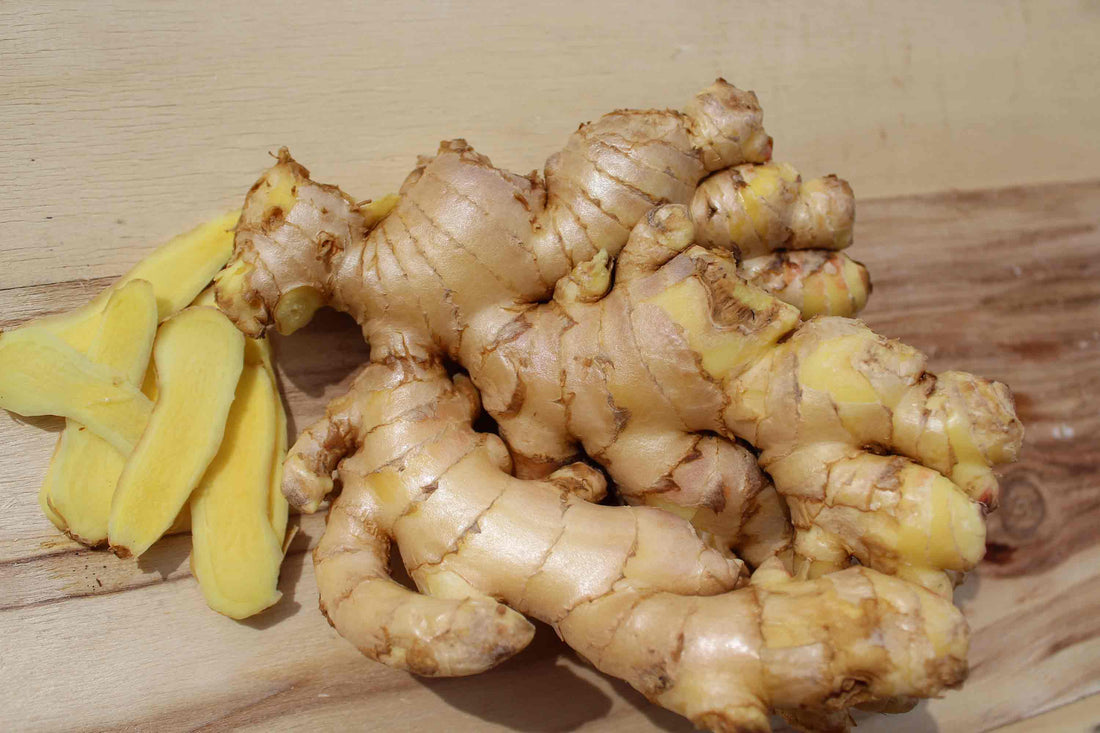
Ginger or kion is a medicinal plant in the form of a rhizome and its scientific name is Zingiber Officinale . Grown in the tropics, this root is one of the best natural medicines in the world. It has been used in India and China since 5000 BC, playing an important role in traditional Chinese medicine and the Ayurvedic diet. Nowadays, its use is increasingly widespread, its therapeutic qualities being well known after the dissemination of its anti-inflammatory and digestive qualities.
Like turmeric , ginger ( Zingiber officinale ) belongs to the botanical family Zingiberaceae and the two spices share the component Zingiberene, which gives them their distinctive aroma. Ginger also contains jingerol , an active ingredient that provides a spicy flavor and is associated with antioxidant and anti-inflammatory properties. Both turmeric and ginger enhance these qualities with the addition of a little ground black pepper and fat, as they increase their absorption. 1
The health benefits of ginger
Among the properties of ginger, we can highlight the following:
- Remedies all types of nausea, such as motion sickness (caused by movement) and morning sickness. Thanks to its antiemetic properties, it relieves related symptoms, such as dizziness and vomiting.
- Also useful for nausea resulting from chemotherapy treatments.
- It prevents the formation of blood vessels in tumors, thereby inhibiting their growth. Forces apoptosis or "suicide" of cancer cells.
- The volatile oils in ginger stimulate the secretion of digestive enzymes to relieve the discomfort of indigestion, gas and colic.
- Prevents premature aging of the digestive system and enhances the absorption of nutrients in the digestion process.
- Stimulates the stomach and intestines to relieve constipation, prevent the accumulation of toxins and fungal infections.
- Regulates blood sugar levels by stimulating pancreatic cells.
- Improves the immune system due to its zinc levels.
- Its aroma and spicy sensation comfort when you have a cold and it has an expectorant effect that helps relieve congestion, expelling mucus from the lungs and soothing coughs and sore throats.
- It has antiviral activity with respiratory viruses (several studies have determined interesting results with HRSV, rhinovirus, hepatitis C and influenza type A)
- It has powerful antiseptic, antioxidant, expectorant, anti-inflammatory and antimicrobial properties; in addition to a high content of iron, vitamin C and polyphenols, among others.
- Jingerol stimulates perspiration and blood circulation, giving energy to the body and promoting detoxification.
- Jingerol suppresses substances that cause swelling and pain in the joints and that is why ginger helps treat the symptoms of osteoarthritis and arthritis. As it relieves pain and inflammation, ginger is also a good remedy for cramps, peptic ulcers, allergies and asthma.
- It stimulates circulation, which helps lower high blood pressure.
- Promotes cardiovascular health: prevents platelet clotting and lowers cholesterol levels to protect the heart.
References
- Bartimues, P.; Haigh, C.; Merson, S. (2011). Natural Wonderfoods. Duncan Baird Publishers, London. Fernández, O. (2013), My anti-cancer recipes, Urano.Álvarez, N. Properties of Ginger . Nártex LABS.Montalvo, PJ, Perales, CV, & Figueroa, LV (2020). Pharmacological properties of ginger ( Zingiber officinale) for the prevention and treatment of COVID-19. Agroindustrial Science, 10(3), 329-338. SEVILLA QUISHPE, DA (2011). The properties of ginger and its use in cooking (Doctoral dissertation, UNIBE).Uddin, R. How much ginger root can you take in a day? .

